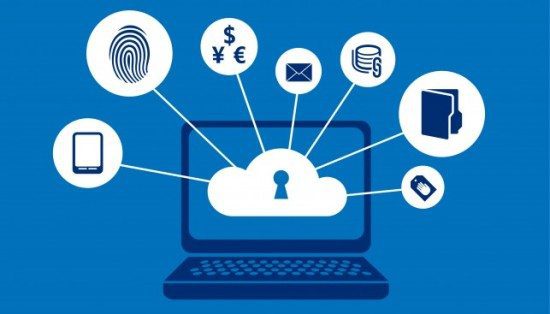Aspen Institute, Intel Security Critical Infrastructure Survey Shows 86% of Respondents Want More Public-Private Cooperation; Of Those who Experienced Cyberattacks, 59% Reported Physical Damage
Information technology (IT) executives within critical infrastructure organisations see a need for public-private threat intelligence sharing partnerships (86% of respondents) to keep pace with escalating cybersecurity threats, according to a survey released today by The Aspen Institute and Intel Security. A majority (76%) of survey respondents also indicated they believe a national defence force should respond when a cyber attack damages a critical infastructure company within national borders. Additionally, although most respondents agree that threats to their organisations are on the rise, they maintain a high degree of confidence in existing security.
The survey, Holding the Line Against Cyber Threats: Critical Infrastructure Readiness Survey, reveals that the critical infrastructure providers surveyed are pleased with the results of their efforts to improve cybersecurity over the last three years, but at the same time many (72%) said that the threat level of attacks was escalating. Almost half of all respondents (48%) believe it is likely that a cyberattack on critical infrastructure, with the potential to result in the loss of human life, could happen within the next three years.
“This data raises new and vital questions about how public and private interests can best join forces to mitigate and defend against cyberattacks,” said Clark Kent Ervin, Director, Homeland Security Program, Aspen Institute. “This issue must be addressed by policymakers and corporate leaders alike.”
Survey results suggest there may be a disconnect between critical infrastructure providers and the current threat landscape:
- Perceived Improvements: Respondents believe their own vulnerability to cyberattacks has decreased over the last three years. When asked to evaluate their security posture in retrospect, 50% reported that they would have considered their organisations “very or extremely” vulnerable three years ago; by comparison, only 27% believe that their organisations are currently “very or extremely” vulnerable.
- Government Involvement Encouraged: Private industry is often hesitant when it comes to government’s involvement in private sector business; however, 86% of respondents believe that cooperation between the public and private sectors on infrastructure protection is critical to successful cyber defence. Furthermore, 68% of respondents believe their own government can be a valuable and respectful partner in cybersecurity.
- Confidence in Current Solutions: Sixty-four percent believe an attack resulting in fatalities has not happened yet because good IT security is already in place. Correspondingly, more than four in five are satisfied or extremely satisfied with the performance of their own security tools such as endpoint protection (84%), network firewalls (84%), and secure web gateways (85%).
- Disruptions Increasing: More than 70% of respondents think the cybersecurity threat level in their organisation is escalating. Around nine in ten (89%) respondents experienced at least one attack on a system within their organisation, which they deemed secure, over the past three years, with a median of close to 20 attacks per year. 59% of respondents stated that at least one of these attacks resulted in physical damage.
- Loss of Life?: Forty-eight percent of respondents believe it is likely that a cyberattack that will take down critical infrastructure with potential loss of life will occur within the next three years, although there were no additional survey questions to determine the circumstances under which respondents believed the loss of life could occur. More US respondents thought this scenario was “extremely likely” to occur than did their European counterparts.
- User Error Still #1 Issue: Respondents believe user error is the greatest cause of successful attacks on critical infrastructure. Organisations may strengthen their security postures, but individual employees can still fall victim to phishing emails, social engineering and drive-by browser downloads that successfully infect their organisations’ networks.
- Government Response: Seventy-six percent of respondents believe a national defence force should respond when a cyber attack damages a critical infastructure company within national borders.
Chris Young, Executive Vice President and General Manager of Intel Security, will be speaking at the Aspen Security Forum in Aspen, Colorado, where more than 80 leading experts will discuss the most critical questions about national security.
Methodology
The survey, conducted by Vanson Bourne, interviewed 625 IT decision makers with influence over their organisation’s security solutions in France, Germany, the United Kingdom and the United States (250 interviews in the US and 125 in each of the UK, France and Germany).
Respondents were from private and public organisations (minimum of 500 employees), with particular focus on the critical infrastructure sectors of energy (139 respondents), transport (130 respondents), finance (159 respondents) and government (128). Questionnaire surveys, such as the one conducted by Vanson Bourne and Intel Security, collect data at a single point in time and are limited in their ability to collect complex and nuanced responses. Furthermore, they are not independently able to support long-term conclusions.[su_box title=”About The Aspen Institute” style=”noise” box_color=”#336588″] The Aspen Institute is an educational and policy studies organisation based in Washington, DC. Its mission is to foster leadership based on enduring values and to provide a nonpartisan venue for dealing with critical issues. Through public and invitation-only forums, roundtables, and conferences, speeches, books, opinion editorials, social media outlets, and media interviews and appearances, the Aspen Institute’s Homeland Security Program works to heighten public awareness as to the nation’s continued vulnerability to terrorism and to persuade decision makers to take the necessary steps to close the gap between how secure we should be and how secure we actually are.[/su_box][su_box title=”About Intel Security” style=”noise” box_color=”#336588″]
The Aspen Institute is an educational and policy studies organisation based in Washington, DC. Its mission is to foster leadership based on enduring values and to provide a nonpartisan venue for dealing with critical issues. Through public and invitation-only forums, roundtables, and conferences, speeches, books, opinion editorials, social media outlets, and media interviews and appearances, the Aspen Institute’s Homeland Security Program works to heighten public awareness as to the nation’s continued vulnerability to terrorism and to persuade decision makers to take the necessary steps to close the gap between how secure we should be and how secure we actually are.[/su_box][su_box title=”About Intel Security” style=”noise” box_color=”#336588″] McAfee is now part of Intel Security. With its Security Connected strategy, innovative approach to hardware-enhanced security and unique McAfee Global Threat Intelligence, Intel Security is intensively focused on developing proactive, proven security solutions and services that protect systems, networks and mobile devices for business and personal use around the world. Intel Security is combining the experience and expertise of McAfee with the innovation and proven performance of Intel to make security an essential ingredient in every architecture and on every computing platform. The mission of Intel Security is to give everyone the confidence to live and work safely and securely in the digital world.[/su_box]
McAfee is now part of Intel Security. With its Security Connected strategy, innovative approach to hardware-enhanced security and unique McAfee Global Threat Intelligence, Intel Security is intensively focused on developing proactive, proven security solutions and services that protect systems, networks and mobile devices for business and personal use around the world. Intel Security is combining the experience and expertise of McAfee with the innovation and proven performance of Intel to make security an essential ingredient in every architecture and on every computing platform. The mission of Intel Security is to give everyone the confidence to live and work safely and securely in the digital world.[/su_box]
The opinions expressed in this post belongs to the individual contributors and do not necessarily reflect the views of Information Security Buzz.



